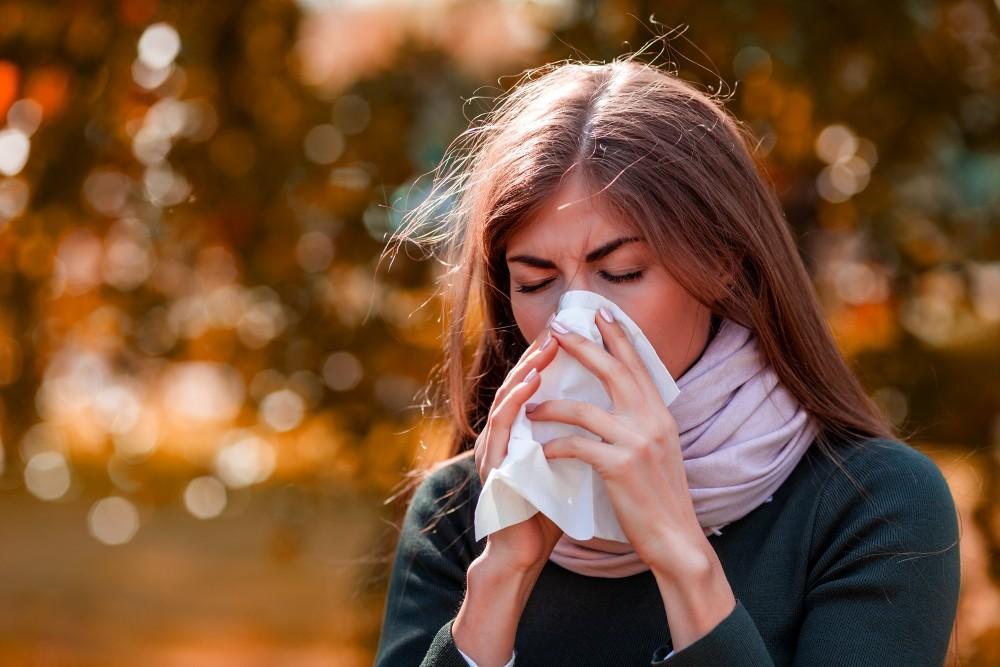As women approach midlife, they experience a range of physical and hormonal changes. Two key stages in this process are perimenopause and menopause. While these terms are often used interchangeably, they actually refer to different phases, each with its own set of symptoms and effects on health.
Understanding the differences between perimenopause and menopause is crucial, as well as recognizing the signs and exploring treatment options. This knowledge will help you navigate these changes with confidence and clarity.
Perimenopause: What You Need to Know
Perimenopause, often called the transition to menopause, is the phase leading up to menopause. It usually starts in a woman’s 40s, though it can begin in the mid-30s for some. During this time, hormone levels, particularly estrogen and progesterone, fluctuate. These hormones play a key role in regulating the menstrual cycle.
Key Signs of Perimenopause:
- Irregular Periods: You might notice changes in your cycle—periods could become shorter, longer, heavier, or lighter as hormone levels shift.
- Hormonal Fluctuations: As estrogen levels rise and fall, you might experience physical and emotional changes.
- Duration: Perimenopause can last anywhere from a few months to more than 10 years, ending when menopause officially begins.
What is Menopause?
Menopause is a clear and definitive phase that signals the end of a woman’s reproductive years. It is officially diagnosed when a woman has gone 12 consecutive months without a period, meaning the ovaries have stopped releasing eggs and producing most of their estrogen. Menopause usually occurs between the ages of 45 and 55, with the average age being 51.
Key Features of Menopause:
- Cessation of Periods: Menopause officially begins when periods have stopped for a full year.
- Permanent Hormonal Changes: Estrogen and progesterone levels remain consistently low.
- Postmenopause: The years following menopause are referred to as postmenopause, during which some symptoms may persist while others subsides
Signs and Symptoms of Perimenopause
During perimenopause, women may experience a range of symptoms due to hormonal fluctuations. These symptoms vary widely in severity and frequency.
Irregular Periods: Changes in cycle length, missed periods, or heavier/lighter bleeding are common.
Hot Flashes and Night Sweats: Sudden feelings of heat, often accompanied by sweating, are a hallmark of this phase.
Mood Swings: Irritability, anxiety, and depression may occur due to hormonal changes.
Sleep Disturbances: Difficulty falling or staying asleep, often related to night sweats or anxiety.
Decreased Fertility: Ovulation becomes less predictable, reducing the likelihood of conception.
Vaginal Dryness and Discomfort: Lower estrogen levels can lead to thinning of vaginal tissues, causing dryness and discomfort during intercourse.
Weight Gain or Changes in Body Composition: Hormonal shifts may lead to an increase in abdominal fat and changes in muscle mass.
Memory and Concentration Issues: Some women report difficulty with focus, often referred to as “brain fog.”
Signs and Symptoms of Menopause
While some symptoms overlap with perimenopause, menopause brings distinct challenges due to sustained low hormone levels.
Complete Absence of Periods: A defining feature of menopause is the permanent cessation of menstruation.
Persistent Hot Flashes and Night Sweats: These symptoms may continue or intensify after menopause.
Bone Density Loss: Reduced estrogen levels accelerate bone loss, increasing the risk of osteoporosis.
Increased Risk of Heart Disease: Low estrogen contributes to changes in cholesterol levels and blood vessel health, raising cardiovascular risks.
Urinary Issues: Weakening of pelvic muscles can lead to urinary incontinence or frequent infections.
Skin and Hair Changes: Thinning hair, dry skin, and reduced elasticity are common postmenopausal effects.
Key Differences Between Perimenopause and Menopause
Perimenopause and menopause are two distinct stages in a woman’s life, each with its own characteristics.
Hormone Levels:
- Perimenopause: Hormone levels fluctuate unpredictably, which can lead to various physical and emotional changes.
- Menopause: Hormone levels remain consistently low, marking the end of most hormonal fluctuations.
Menstrual Periods:
- Perimenopause: Periods become irregular, but they still occur, though their frequency and intensity may vary.
- Menopause: Menstrual periods are absent for 12 consecutive months, signifying the official start of menopause.
Duration:
- Perimenopause: This phase can last anywhere from a few months to over a decade.
- Menopause: Menopause is a permanent transition, indicating the end of the reproductive years.
Symptoms:
- Perimenopause: Symptoms vary widely due to the shifting hormone levels, and women may experience a range of physical and emotional changes.
- Menopause: While symptoms may stabilize, they can persist for years after menopause begins.
Treatments for Perimenopause and Menopause Symptoms
Both perimenopause and menopause come with challenges that can disrupt your daily life. However, there are effective treatments available to help you manage your symptoms and improve your quality of life.
Lifestyle Changes
Balanced Diet: Focus on calcium- and vitamin D-rich foods to support bone health. Reduce processed foods and added sugars to manage weight.
Regular Exercise: Aerobic and strength-training exercises can improve mood, maintain muscle mass, and reduce hot flashes.
Stress Management: Practices like yoga, meditation, and deep breathing can alleviate anxiety and improve sleep.
Sleep Hygiene: Maintain a regular sleep schedule and create a comfortable sleep environment.
Hormone Replacement Therapy (HRT)
HRT involves taking estrogen and, if necessary, progesterone to alleviate severe symptoms like hot flashes, vaginal dryness, and bone loss. However, it may not be suitable for everyone, as it carries risks, such as blood clots and certain cancers. A healthcare provider can help weigh the benefits and risks.
Non-Hormonal Medications
Antidepressants: Low-dose antidepressants can help with mood swings and hot flashes.
Gabapentin: Originally for nerve pain, this medication may reduce hot flashes.
Vaginal Estrogen: Available as creams, tablets, or rings, it targets vaginal dryness without affecting systemic hormone levels.
Natural Remedies
Phytoestrogens: Found in soy products and flaxseeds, these plant-based compounds mimic estrogen and may ease mild symptoms.
Black Cohosh: An herbal supplement sometimes used for hot flashes, though evidence of its effectiveness is mixed.
Acupuncture: Some women find relief from hot flashes and sleep disturbances through this alternative therapy.
Health Considerations During and After Menopause
Bone Health: Estrogen loss accelerates bone thinning. Regular weight-bearing exercise, calcium-rich foods, and vitamin D supplements are crucial.
Cardiovascular Health: Monitor cholesterol levels, blood pressure, and weight to reduce the risk of heart disease.
Mental Health: Mood swings and anxiety can persist. Seek support from therapy, support groups, or medication if needed.
Routine Screenings: Mammograms and Pap smears for cancer detection. Bone density tests to identify osteoporosis risk.
When to Seek Medical Advice
While perimenopause and menopause are natural processes, some symptoms may require medical attention:
- Heavy or prolonged bleeding.
- Severe hot flashes that disrupt daily life.
- Painful intercourse unrelieved by lubricants.
- Signs of depression or anxiety.
Dr. Michael Bazel can provide a personalized plan to help you manage your symptoms effectively.
Conclusion
Perimenopause and menopause are important milestones in a woman’s life, both bringing hormonal changes that can impact physical, emotional, and mental well-being. Understanding the differences between these stages and recognizing their unique symptoms can help women take charge of their health, seek the right treatments, and make lifestyle adjustments for a smoother transition.
By taking proactive steps and working closely with Dr. Bazel, you can manage these changes confidently and maintain a high quality of life during and after menopause.
Contact us today to schedule an appointment!


